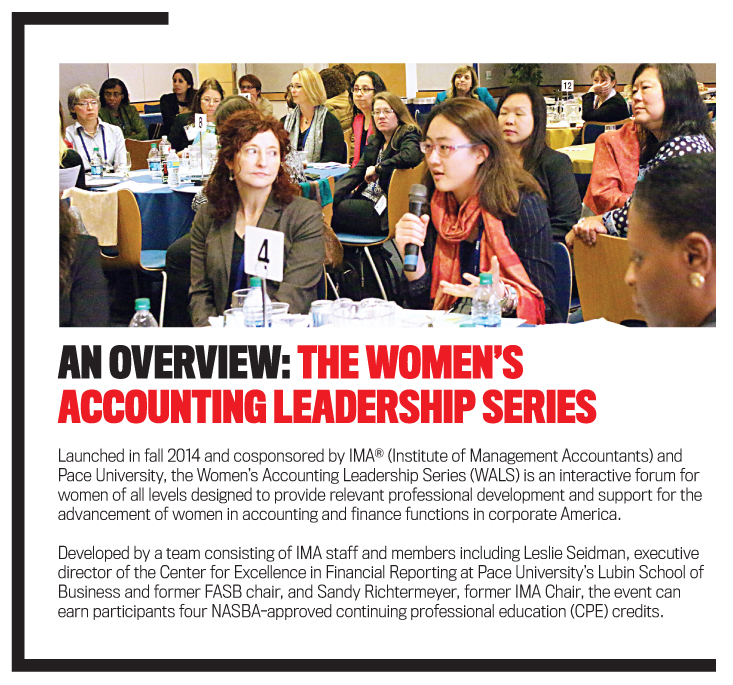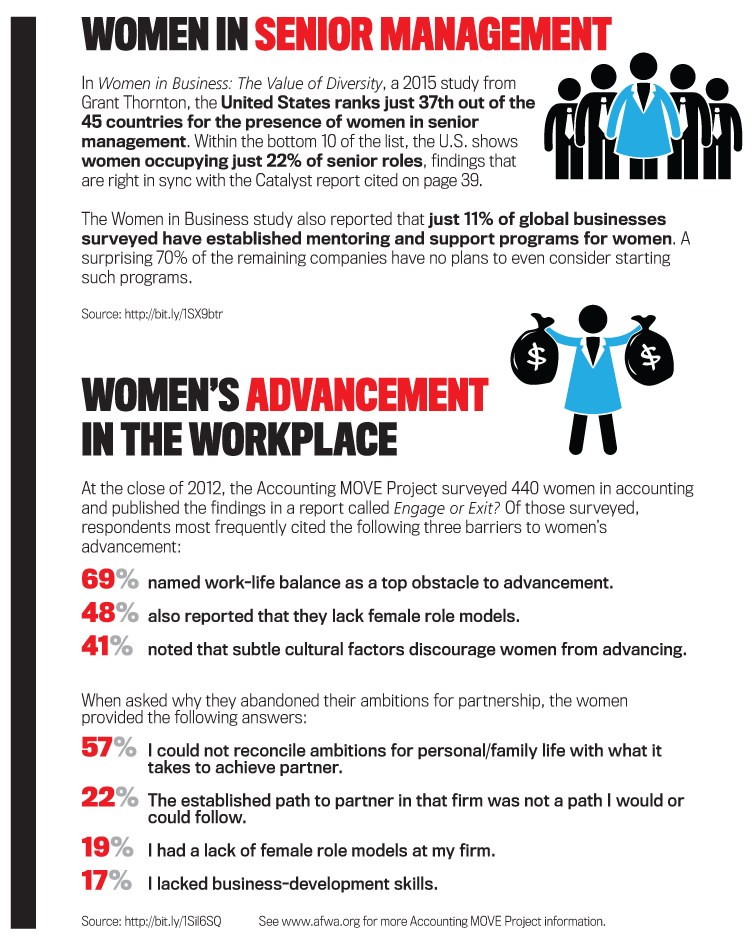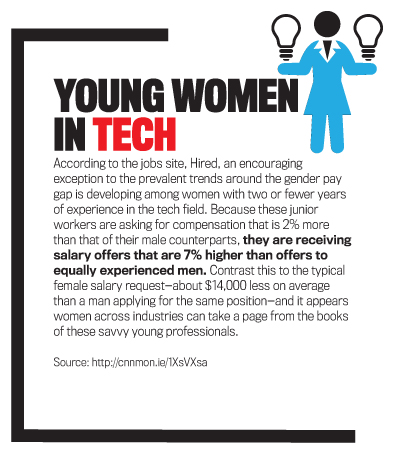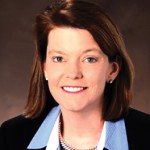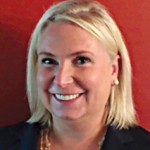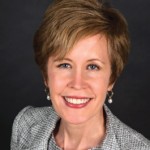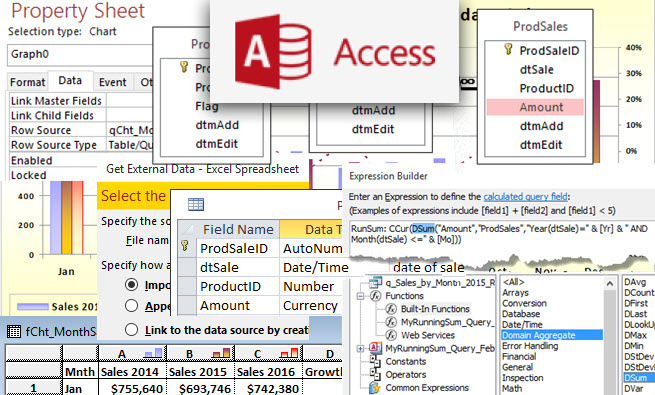This biannual event covered a technical topic—“Upcoming Changes in Lease Accounting”—presented by Sue Cosper, technical director of the Financial Accounting Standards Board (FASB) and chairman of the Emerging Issues Task Force. It also explored women’s issues in “The Role Women Play in Driving Business Performance,” presented by Sandra Richtermeyer, professor of accountancy and associate dean at the Williams College of Business at Xavier University and former IMA Chair.
But the real showstopper of the Women’s Accounting Leadership Series event was the “Strategies for Professional Success” panel discussion with Susan Hohenleitner, vice president of finance and CFO of Johnson & Johnson Customer and Logistics Services (CLS), and Ann Dennison, a senior vice president with NASDAQ. Former FASB Chairman Leslie Seidman, an executive director at Pace University’s Lubin School of Business, facilitated the discussion in which panelists shared their insights, experiences, and advice on workplace challenges women face. This is a condensed version of that discussion that includes the highlights of their journeys and the unusual twists and turns that make each of their stories unique.
In your opinion, what are the key attributes for success in accounting and finance?
Hohenleitner: Be curious and confident.
On being curious: Don’t just do the task at hand, but understand why you’re doing what you’re doing and have an interest in the big picture. By doing this, you’ll not only get more fulfilling results in your day-to-day roles, but you’ll also distinguish yourself as someone who wants to do more, be more, and move up and on in the organization. Do understand that there’s a fine line between being curious and being annoying by asking why all the time (as a two-year-old child would). Investigate on your own, explore the bigger picture in all that you do, and share your learnings with others at your level, too. I remember getting to work early at J&J just to read a bunch of material on the department we work in. Doing that small task really helped me to see the bigger picture and helped me to start to put different pieces together.
On being confident: In order to distinguish yourself, you need to be confident. Even if you sometimes have to push yourself to do so, you should take a deep breath, hold your head high, and know you can get through any task, big meeting, or tough conversation with confidence. During my first role as a director, I remember confiding in my boss at the time (who later turned out to be a strong mentor). I told him I really didn’t have anything insightful to add to a conversation about something when there were experts in the room. I really thought there was nothing I could contribute. He told me to “believe you belong” in that room, to think like a business person, not an accountant, and to contribute like I was the expert. In many meetings after that, I kept repeating “believe you belong” in my head, and I really think it helped my confidence as I progressed further in my career. I definitely don’t proclaim to be an expert in the meetings I attend, but I do feel that with years of continuing to repeat this phrase before something important, it has helped my confidence in contributing valuable insights without hesitation.
Dennison: Have the right relationships.
For many years, given everything that I had to balance at home and work, I tried to be efficient at everything. I had my to-do list and checked things off as I went through them each day. What I realized, though, was that interpersonal interactions can’t be checked off a to-do list. They can’t be rushed through; they have to develop over time and with consistency. It’s easy to get lost in the day-to-day, but make sure to focus on specific key relationships, share important things that that person might like to know, and interact often. These personal and thoughtful interactions can often lead to really great natural relationships that can be maintained over time with smart effort.
Seidman: Understand the importance of networking.
Think of every new situation as an opportunity to meet people, not with any specific objective or outcome in mind, just to get to know them and them to know you. A lot of key personnel decisions (internal and external) are influenced by “who you know,” so it’s really important to view this as part of your career plan.
Start with your peer group, people you work with, meetings of associations, etc. When approaching senior colleagues for career advice, be mindful of their time and suggest a short office visit rather than asking them to lunch. When you go to larger gatherings, learn how to introduce yourself to new people; don’t stay with the people you know. Hold up your end of the conversation by asking questions and sharing information, and practice excusing yourself gracefully instead of clinging to the nice person you just met. This way you can develop potential supporters and mentors naturally, and you’re more likely to have reciprocal relationships at various levels of experience.
What type of successful work-life balance have you seen or been able to achieve? What were some of the challenges you faced, and how did you overcome them?
Hohenleitner: There’s never going to be one perfect balance.
I wish I could say I found the magic answer for work-life balance, but, if I did, I’d be rich and retired by now, and you’d all be buying my book! The truth is I go to different networking events just like everyone else to learn tricks and tips and to see what everyone else does to manage and get through each day. I read and compare notes, trying to find those few nuggets from each person that might work for me. Some ideas might not work for you, and some may help, so just be open to learning from the people around the room and at your tables.
Also remember—even under the best circumstances, the right thing won’t always win your attention. Sometimes you may have to pick an important work meeting over something outside of work that is important (a school activity with a child or a movie with a friend). I always say that if you assume balance means not missing a thing, then you’ll be really disappointed with how things work out. What I try to do the best way I can is to make sure that at the end of a week or month, I felt like I ended up where I wanted to be and needed to be the majority of the time. That might mean being at a big meeting or conference, but it also might be watching your kids get on the bus for their first day of school.
When you really need to be somewhere outside of work, employ the best of your flexibility and negotiating skills to be sure you make it there. I think a lot about this expression: “You’ll NEVER REMEMBER the big meeting you got to by missing the first day of school for your kids, but you will ALWAYS remember you missed that first day of school.” You have to prioritize the right stuff and the most important nonnegotiables, and the rest will hopefully work out. As I prepped for this Women’s Accounting Leadership Series, one of my three kids was sitting on my lap home from school, sick. So there’s a nonnegotiable!
Dennison: Keep the lines of communication open.
I’ve faced many different challenges regarding balance during my career. I have four children and was on maternity leave four times at GS [Goldman Sachs]. Each time, I faced some trepidation about how it would impact me and how I would return with the same drive and stamina. Returning to work after having my first child was the most difficult, but I had a very supportive environment at GS. I didn’t feel as though my career was set back or suffered as a result of any of the leaves.
In order to make it work, I kept the lines of communication open with my manager, always updating him about what was happening on the team. Of course, the challenges changed as my children got older, so I needed to plan each week to ensure that I could manage both the needs at home and work. This planning was helpful as I worked remotely because I was still able to stay effectively engaged with my team.
My circumstances also brought up another challenge: being able to leave when I needed to without feeling guilty if the team was still there resolving issues or getting things done. I realized with time that this is critical to do when needed in order to make sure you are resilient and to have the right balance. Show trust in your team, and don’t feel guilty about doing what you need to do.
Seidman: Actions speak louder than words.If you supervise people, they won’t feel comfortable with flextime or even normal work hours if you work around the clock, send e-mails at all hours of the night, etc. I had the great fortune to work for someone at J.P. Morgan & Co. who worked very hard during the day but left the office at 6 p.m. almost every night. He got into the office very early, too, but not everyone knew that. Through his actions, he was modeling work-life balance—and he happened to be single. I’ve heard it said that people leave managers, not companies, so it really is up to you to send the right message.
If you’re currently a junior person in the office, you have to work hard, and people need to know that you’re working hard. But you also really need to be clear in your commitment to balancing work and life. Discuss your hours with your manager, focus while you’re at work, and don’t apologize for leaving at the appointed hour. If needed, you can offer options to show you’re accessible remotely, such as calling from the car or sending an e-mail when you get home. It gets easier as you rise in an organization, and I made it a priority to model reasonable work hours at the FASB.
Hohenleitner: Final Thoughts
One of the most important things that we must continuously do is to network with other women, paying it forward and helping others to do what we all need to do. Conversation plants the seeds that can ultimately introduce meaningful change. As we discuss these topics with each other, we can learn and obtain insights that help us understand how both our own behaviors and organizational culture affect which doors open or close on this leadership journey.
Just as women’s roles continue to change, so, too, will the Women’s Accounting Leadership Series. The series will adapt to keep up to date with trends, business topics, and pressing issues in the workplace.
The Women’s Accounting Leadership Series just wrapped up the most recent session in Phoenix, Ariz., on April 29, 2016. For questions about this event and future events, contact Lisa Beaudoin, IMA director of educational partnerships, at womensleadership@imanet.org.
The Panelists
When Susan Hohenleitner, CMA, CPA, finished her undergraduate degree at La Salle University in Philadelphia, Pa., she became an auditor at Arthur Andersen. After four years, she moved to Johnson & Johnson (J&J), where she had held a co-op work assignment (paid internship) in college. She has spent the last 18 years at J&J in various roles, all within finance, supporting commercial operations, business development, investor relations, and global customer and logistics services, which encompass all of the company’s transportation, warehousing, and customer service operations around the world. She has a strong interest in J&J’s finance organizational development and leads their Finance Women’s Leadership Initiative while also being an active recruiter and mentor. Susan is a member of IMA’s Greater Philadelphia Chapter.
Ann Dennison, CPA, started her career in public accounting at PricewaterhouseCoopers (PwC) and, after four years, took on a finance role at Goldman Sachs (GS), where she remained for 19 years supporting different businesses. Early on, her managers at GS were instrumental in guiding her to success, allowing her to find a balance when needed. After having her first child, she took on a new role at GS, but on that first day in the planning group she was there until 2 a.m. She realized at that point in her career she couldn’t do that role effectively. Her manager gave her a different opportunity that allowed her to continue to grow, and 10 years later she took over the planning group. Last October, Ann joined NASDAQ, where she is a senior vice president and controller.
Leslie Seidman had never met an accountant, but when she needed to pay off her student loans she opted for an accounting firm program designed for liberal arts majors. She began her career in auditing but then worked in the industry for several years, focusing on policy work. She rose to vice president, working for a supportive male boss, and became a fellow at the Financial Accounting Standards Board, where she could actively participate in the accounting standards-setting process. As an FASB staffer, Seidman juggled work with her growing family and, after five years, left to work as a consultant for a few years. She was self-employed when she was offered the job on the FASB board and later was promoted to chairman when the former chairman resigned early. She took a friend’s advice and “owned it from the beginning.” When her 10-year term ended in 2013, she had the opportunity to reinvent herself. She is now enjoying her role at Pace and serves on a few boards of directors, which gives her a whole new perspective on risk, strategy, and talent management. Leslie is a member of IMA’s New York Chapter.
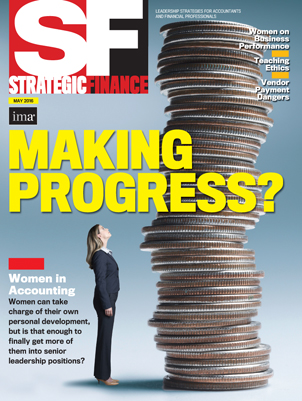
May 2016


